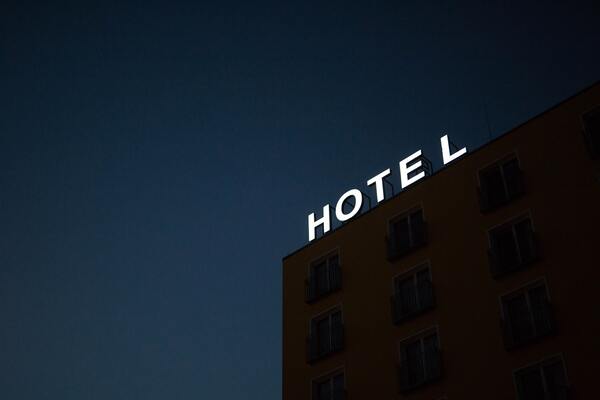Knowing what you want from your accommodations can make choosing between an Airbnb and a hotel easier, especially when the price and location are comparable. Both varieties of stay have advantages and disadvantages. Learn more about the distinctions between an Airbnb and a hotel by reading this article.
Airbnb
Since its launch in 2008, Airbnb has experienced rapid growth. The largest peer-to-peer hospitality service, Airbnb will generate $3.4 billion in revenue in 2020. The COVID-19 pandemic, which severely restricted travel worldwide, has caused it to struggle, though. Revenues fell by 29% in 2019 and by 8% in 2018, demonstrating this.
The core of Airbnb’s business strategy is its marketplace platform, where hosts and guests can trade housing for cash. Review sites and social media connections can be found by hosts and travelers throughout the application process to increase user credibility.
Although useful, this strategy is not specific to Airbnb. Users can control their experiences and influence future consumer decisions thanks to the proliferation of digital technology through a variety of online platforms. While board review systems are not directly accessible on all hotel websites, they are available on third-party platforms like Yelp or Expedia.
Although Airbnb offers a platform for peer-to-peer exchanges, the costs of the lodging provided by hosts are unaffected directly by it. When renting out their properties on Airbnb, hosts adhere to rules that are comparable to those used by hotels.
Visitors looking for stays of less than seven nights will probably pay more than those looking for longer stays. Airbnb hosts are free to set their own rates for single nights, weekly stays, cleaning fees, weekend stays, and additional guests when they list their homes for rent.
On weekends, holidays, and when there are more guests than beds, rooms can sell for a premium price, just like in hotels. However, since most hotels have in-house cleaning services, hotel visits do not incur a cleaning fee.
Additionally, prices for hotel rooms and Airbnb accommodations are higher in high-demand locations like big cities or close to tourist attractions.
Due to its success so far, Airbnb has managed to circumvent numerous rental and hotel tax laws. For hosts, rules and property laws can be a big worry. There are squatter laws in many states, which give tenants’ rights to visitors who stay in a rented space for longer than 30 days.
Furthermore, unless the resident is present at the same time as the visitor, it is unlawful to sublet a residential space, such as a house, an apartment, or a room, for less than 30 days in some states.
Hotels

Because rent and the cost of living are much higher in major cities, hosts and hotels must include the rent for a prime location in their prices. However, a well-known hotel chain keeps a pricing structure that satisfies guest demand, whereas Airbnb hosts are free to set their own rates.
Prospective customers frequently discover that Airbnb offers a less expensive alternative to many hotels.
Customers can find a bed, bathroom, and closet in a typical hotel room, all of which are of varying comfort levels. As an alternative, a typical apartment provides the same comforts in addition to a kitchen and a bigger living area.
A vacation apartment might be more accommodating for families or groups than a hotel.
Recently, Airbnb launched Airbnb Luxe in an effort to compete with the high-end hotel industry by focusing on the luxury market.
As a result, while hotels initially enjoyed a safe haven where they could avoid competing with Airbnb, the gaps between their services have started to close, and the latter can now only pale in comparison to the wide range of options provided by Airbnb.
Airbnb Vs Hotel: What Are The Differences
Accommodation Types
For a variety of travelers, including independent families and digital nomads, when it comes to what lodging can offer, Airbnb frequently comes out on top.
The most popular home-sharing platform in the world, Airbnb matches private property owners with people who want to rent their homes for a set amount of time. In addition to some hotel rooms, it offers standalone residences and communal areas.
Using an online tool resembling those used by the majority of hotel chains, you can search all of these stays according to location and price range.
In actuality, an Airbnb’s residential units aren’t all that dissimilar from a hotel. Similar to hotel rooms, these areas offer a place to sleep, frequently host different visitors, and undergo cleaning in between uses.
But there are some benefits to using Airbnb that hotels often cannot match, at least not at a comparable price. Guest rooms and occasionally suites are a much more conventional feature of hotels.
In contrast, Airbnbs frequently provide residential-style amenities like living rooms, kitchens, dining rooms, laundries, and, in some locations, a private parking space.

Hotel suites can certainly match some of these amenities, but they frequently come with an additional cost above the cost of a standard room.
Airbnb can even provide discounts for extended stays, just like some hotels. When making a reservation for a stay that will last for several weeks or months, this can be especially useful.
Although extended stay hotel brands are aimed at this market, they still lack some of the more roomy amenities found in some residential Airbnb properties.
Quality
There will always be outliers, but hotels are subject to much more regulation than Airbnb. Hotels outperform Airbnb in terms of quality for the main reason mentioned above.
To manage the daily operations, hotels have staff on duty around the clock. When you stay in a hotel, you can reach these employees right away, which isn’t always the case with Airbnb.
Problems with the WiFi or the pool? Staff members at the hotel are working on it. A host must be contacted in order to use Airbnb, and the delay can be annoying.
In general, hotels give guests the choice of daily housekeeping, whereas Airbnbs don’t. Furthermore, they don’t charge an additional fee for this service. Cleaning fees are frequently added by Airbnb hosts and aren’t part of the base price.
The term “Airbnb Plus” denotes that the company has sent a representative to personally inspect the property. Airbnb does have this designation for properties. Plus properties are the way to go for novice users or those who prefer a little bit more quality control.
Flexibility
When booking, policies are made clear and both hotels and Airbnb provide reasonable flexibility.
There are many hotels that offer nonrefundable rates or higher, more flexible rates. Some hotels are accommodating to guests in spite of their standard cancellation policies in the event of unforeseen events (like a sudden illness).
This indicates that you can try your luck and that many hotels will agree to waive fees in your favor, particularly if you have supporting documentation.
It is common for Airbnb hosts to establish their own cancellation and refund policies, which are disclosed both on the listing page and during the booking process.
Additionally, you can search for listings with a free cancellation option and find listings with both nonrefundable and refundable price options by using filters.
A few extenuating circumstances are covered by Airbnb’s cancellation policies, but individual experiences will depend on the circumstances.
Ability To Stay For Free
Depending on the location, amenities provided, and time of year, there may be a price difference between a hotel room and an Airbnb. As with other aspects of life, the law of “supply and demand” is applicable.
If everything else is equal, there is one benefit that can significantly influence your choice: loyalty programs. Many people are addicted to the ability to accumulate and exchange points for hotel stays, and Airbnb doesn’t have a comprehensive loyalty program.
With a hotel loyalty program, you can accrue points for each dollar spent at participating hotels, plus extra points if you have elite status with the company or are using a credit card with its logo.
By later using them to pay for additional stays, accumulating these points can significantly increase their value.
When Is Airbnb Better
Under certain conditions, Airbnb is the best option:
- Trip types: group trips (friends, family reunions, bachelor/bachelorette trips) are perfect for Trips to vacation locations where there may be fewer hotels; extended stays, were feeling at home is important; and Airbnbs because they have more space and the cost can be shared among many people.
- Traveler types: Those who want to “live like a local” and experience what it’s like to live in the destination; independent travelers looking to save money on lodging and self-cater meals; those who want more space and to avoid the crowds, such as pet owners and families with young children; and travelers who want to “avoid the tourist traps.”
When Are Hotels Better
Hotel stays are more appropriate for some journeys. The most obvious use case a business trips, as 68% of business travelers who have had a negative experience using Hotels are preferred because I use Airbnb for work.
Although Airbnb has made improvements in this area, there is still some unpredictability that discourages business travelers. Hotels are frequently more advantageous for:
- Trip types: Urban getaways that place less emphasis on time spent on the property; family vacations where the kids want to use the facilities; wellness retreats that place more emphasis on on-site spa treatments; and indulgent getaways where nobody wants to do anything.
- Traveler types: Loyalty program participants who want to accrue points; people who value consistency of experience; design-conscious travelers who enjoy exploring hotel properties.
Final Words
There aren’t many travelers who only use Airbnb, so choosing between it and hotels shouldn’t be seen as an either/or choice. By identifying property characteristics that appeal to particular market segments and trip types, hotels can compete head-to-head with Airbnbs. It depends on the travelers’ preferences.







